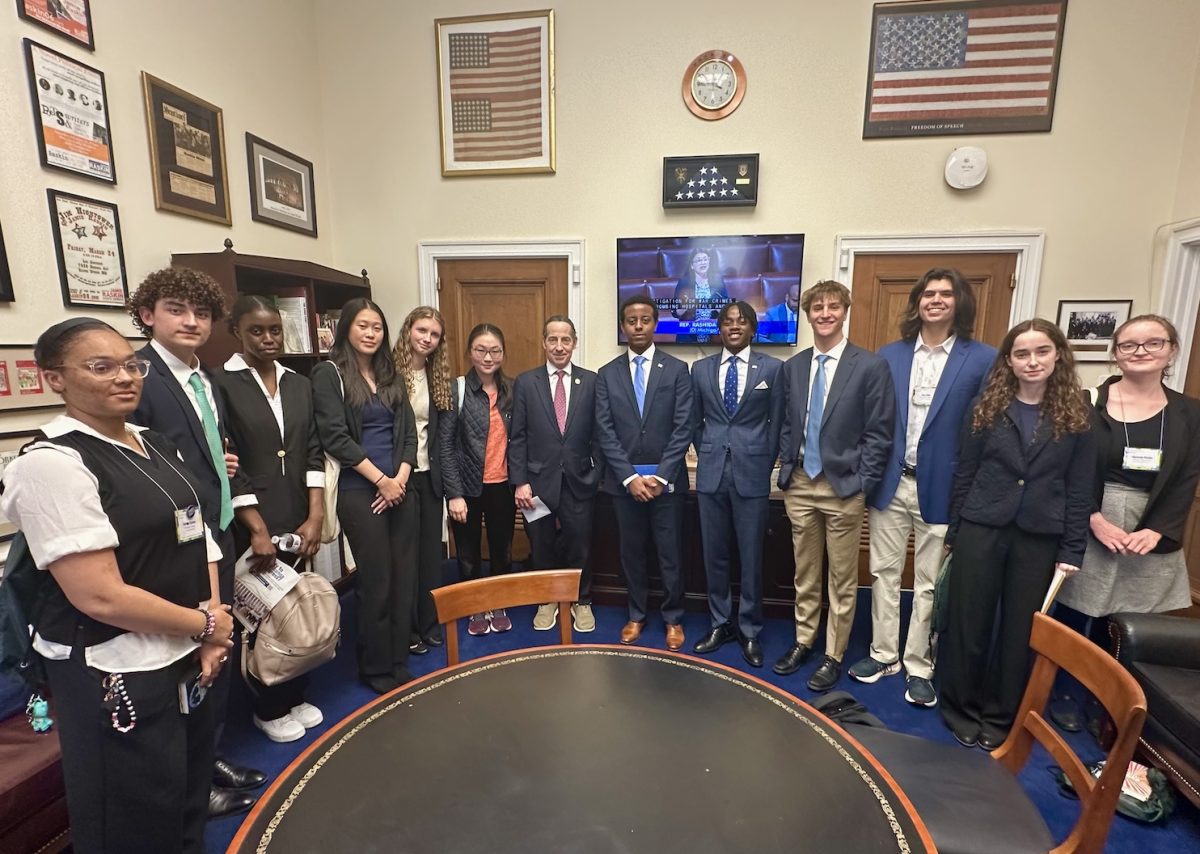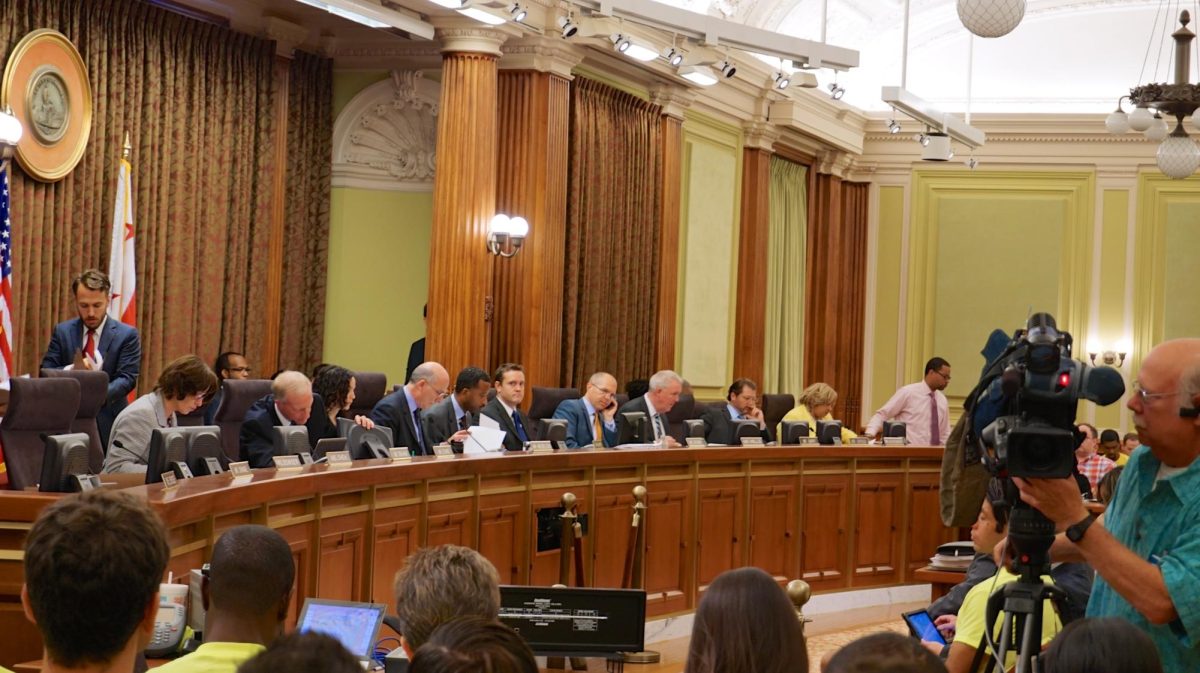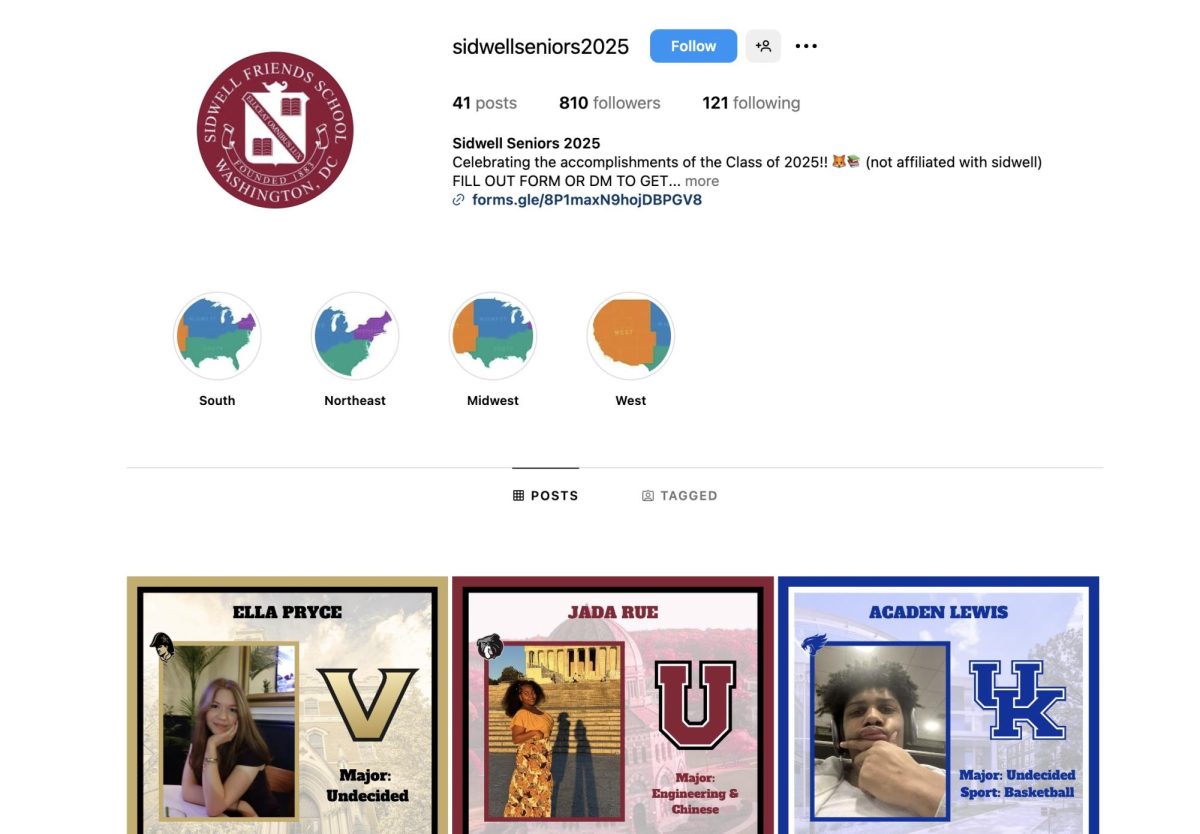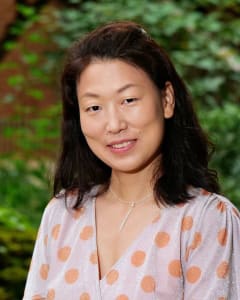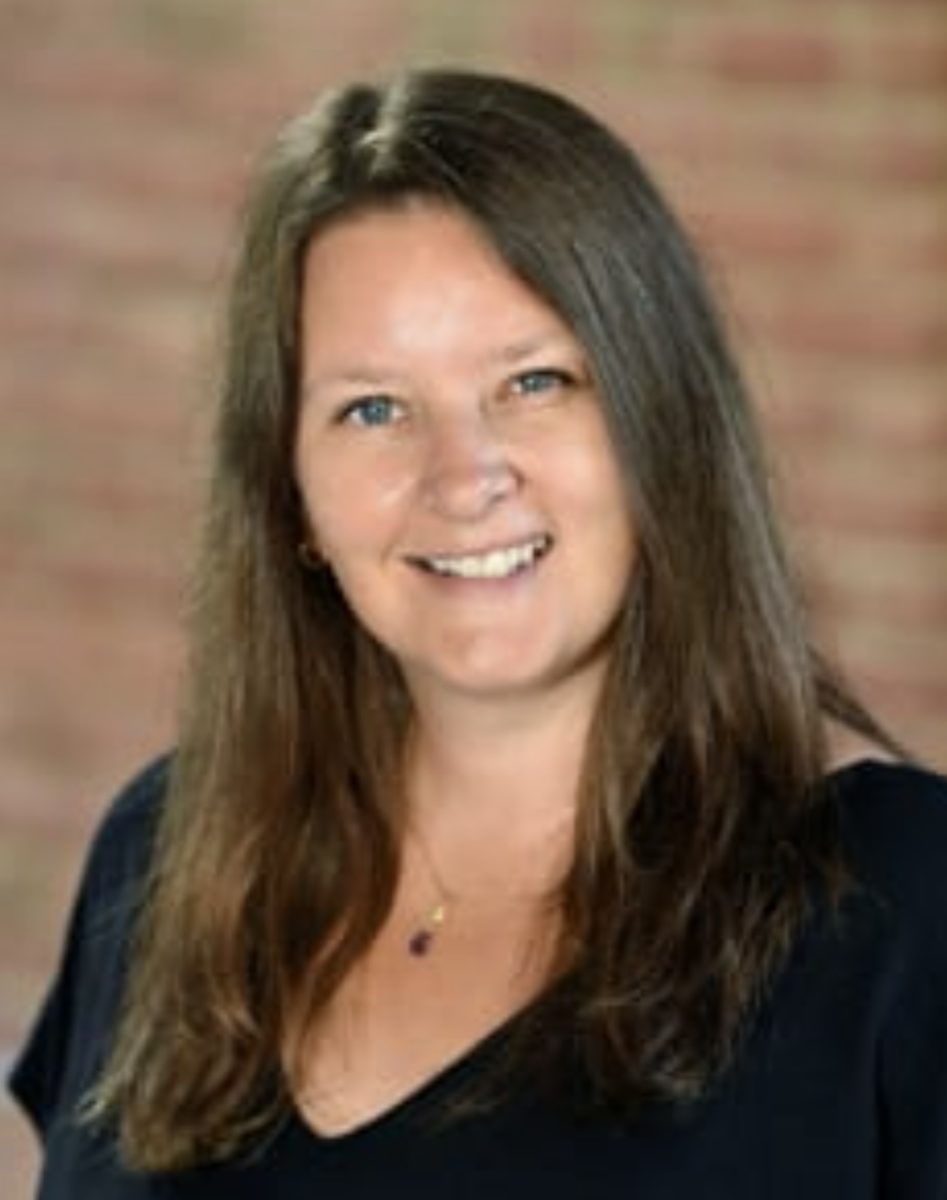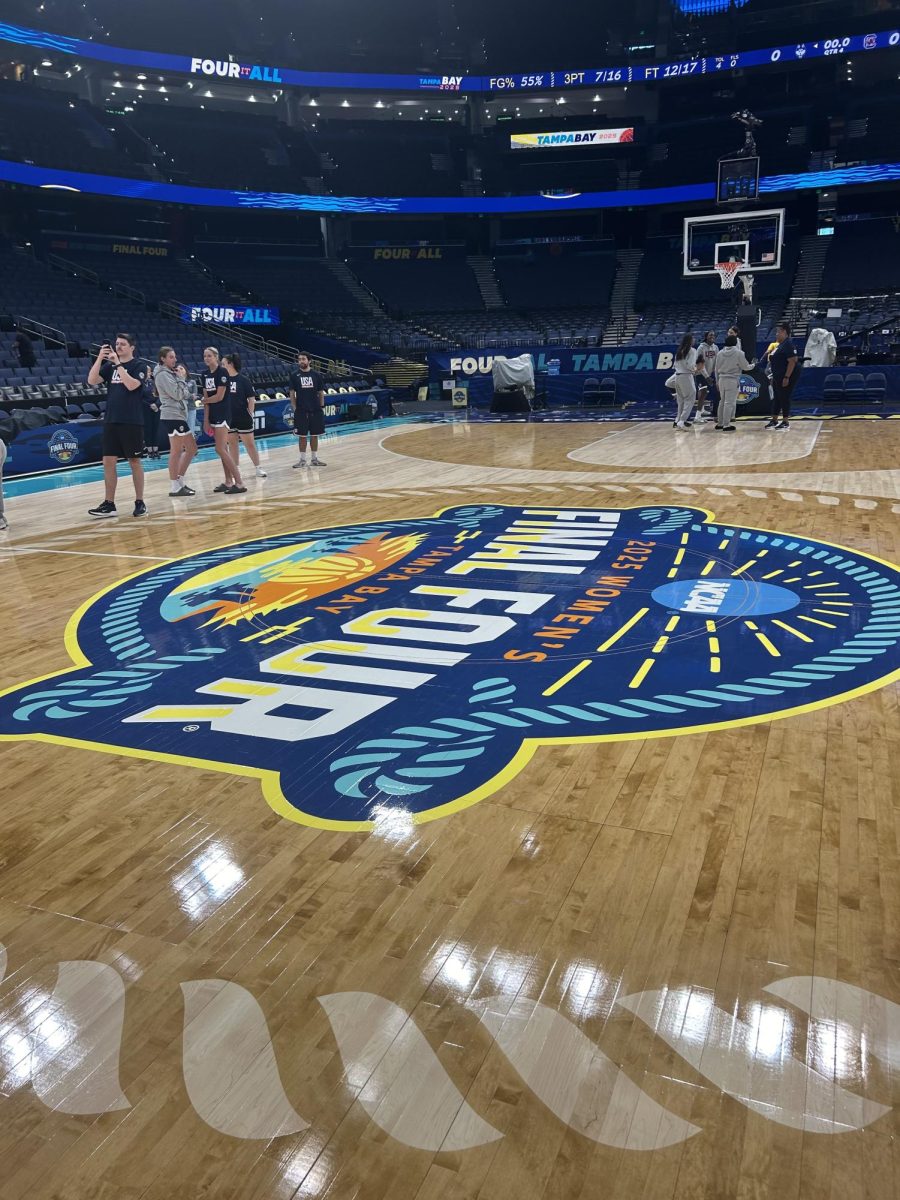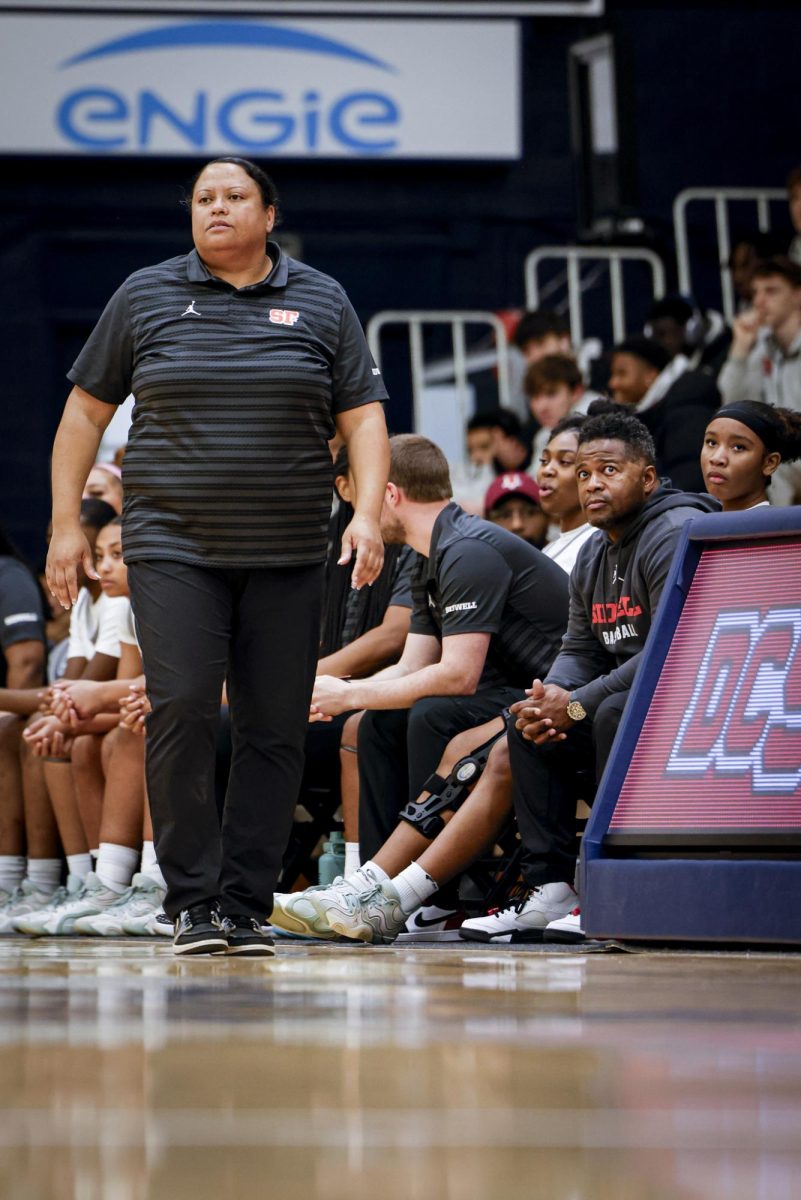Sidwell English teacher Samantha Goodwin always wanted to become a teacher and follow in the footsteps of her mother, whom she admired growing up. Despite exploring other career paths, Goodwin knew that teaching was her endgame. “When it was time to actually get a job after college, I was like no to everything else, teaching is what I want to do,” she said.
“In high school, I fell in love with storytelling,” Goodwin said. “I was always a big reader, in school and for fun. Once I started writing creatively and analytically, it was a no-brainer that [English] was what I wanted to major in.”
Freshly out of college, Goodwin taught English to seniors–some only three years younger than she was. She formed a “natural connection” with students, thanks to their closeness in age and shared interest in popular music and TV shows. Still, she did not have the confidence and experience she has today; it was her first time behind the teacher’s desk rather than in front of it. “I felt like I was re-inventing literary analysis every day when doing my lesson plans,” she said.
Throughout her 17 years of teaching, Goodwin has grown significantly, developing new skills and, most importantly, gaining confidence. Compared to the teacher she was at 21, Goodwin admits she has become more disconnected from pop culture. Still, she finds new ways to connect with students inside and outside the classroom to build personal relationships with her students
“Community is something I want to build in the classroom,” Goodwin said, “I have adapted and adopted practices that work for better learning that I didn’t know when I first started.” She explained how experience and learning from doing has enhanced her understanding of the students and teaching itself.
“The great thing about teaching that isn’t always true about other jobs is that you get to start over each year,” she said, “If something didn’t work or didn’t go well, you always get to try it again.”
Goodwin encourages her students to follow this philosophy of continuous improvement in their writing. Whether working on essays or short stories, she urges them to “tweak it, change it, adapt it as you must” when a sentence does not sound right. Most importantly, she emphasizes not becoming discouraged if something is not working, reminding students there is always an opportunity to try again.
When asked about the biggest rewards of teaching, Goodwin pointed to “watching each student grow, especially if I had them in ninth grade and then have them again in 12th, and seeing their evolution as a writer and their personal confidence and risk-taking.” She noted how growth can look different for everyone, whether it is increased participation, striving for higher quality or making their voices clearer in their writing.
“Being aware that each student has a different voice and brings a different perspective to what they read — and who they are in the world — leads to different interpretations of the text,” Goodwin said. “I take that into consideration when I grade an essay.”
Goodwin also emphasizes humor as a part of her approach. “I think humor plays a big part in learning,” she noted, “While it can be disruptive and de-rail, it can also be a way to connect and to create inroads into the text.” When asked about humor’s significance in her teaching, Goodwin added that she wants students to see English as “fun.”
“There is a way to be serious and take a piece of text seriously, without taking ourselves too seriously.” In fact, Goodwin says that if she could go back and give advice to her younger self, she would say, “It’s okay to have a little fun and still be a serious teacher.” Goodwin implements this mindset in her Sidwell classroom by emphasizing that “although the stakes can be high for a student here, it is most important to be searching for understanding in English, not only for a high grade.” She believes grades “can still matter and there can still be fun,” summarizing her philosophy: “Do well, do your best, always, and enjoy.”
To Goodwin, it is especially important that students find joy in writing and grow from feedback. She strives to create a learning environment where students feel excited and eager, using humor to ease the difficulty of complex texts and building connections that help students confidently raise their hands to participate and express their own voices in their writing.



